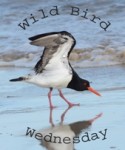
As a kid I remember my grandmother telling me that if I stepped on an ant it would make it rain. On my way to school, not wanting to be caught in a downpour, I would usually go out of my way to keep from squashing them on the sidewalk. Sometimes when I got tired of long hot summer days I longed for the excitement of a thunderstorm and the nice clean smell that came with the first raindrops. Then I’d go looking for ants to stomp.
A vestige of that childhood habit must have persisted in the deep recesses of my brain, for one morning, while leading a group of a dozen fourth and fifth graders, my foot unconsciously deviated to crush an innocent little ant.
“Why did you do that?” one of the children quietly asked me.
“Do what?”
“Step on that ant.” His voice got a little louder, and all the kids were now paying attention. I lied that I did not do it intentionally, but I knew he saw through me. What followed was a surprisingly sober exchange of views between the students, about the web of life, predators and prey, cats that brought home baby rabbits and birds, and how death has a place in the natural scheme. Knowing my action had violated the pattern, I listened passively.
Teilhard de Chardin viewed consciousness, like radiation and magnetism, as a property of all matter. It is always there, usually invisible, but more evident when matter defies entropy and reaches higher levels of complexity and organization. Without good reason, while walking along a dusty path, I had snuffed out a tiny spark of awareness. As a result, the riverside bosque was now ever so slightly diminished.
ADDED June 6, 2007 — A few links about stepping on ants:
The Ant Bully
Teaching Children the Consequences of Their Actions
In “The Ant Bully” (Now Out On DVD)
This film will have you thinking twice the next time you go to step on an ant!
Arthropod Proverbs
Even the wishes of a small ant reach heaven. (Japanese)
All for One, One for All: Fire Ants
When we step on an ant, the crushed ant emits an alarm pheromone in high concentration. That sends other ants nearby into war frenzy and causes them attack …
Hey, Little Ant
Hoose, P. & Hoose, H. (1998). Hey, little Ant. Berkeley, CA: Tricycle Press
This is a story about a boy who wants to step on an ant and squish him. Of course the ant does not want to be stepped on , so he and the boy have a discussion about why he should and should not step on the ant.
Ant Angst and Other Lessons of Science
Of course, some science is bunk. For example, Peter Austin, from the Institute for Clinical Evaluative Sciences in Toronto, recently proved that Virgos are more likely to vomit during pregnancy. He was illustrating how it can be dangerous to base your conclusions on just one study. In truth, Virgos are no more likely to vomit than anyone else. “We did this study to prove a larger point, the more we look for patterns, the more likely we are to find them, particularly when we don’t begin with a particular question,” Austin explained. Studies have also shown that Virgos are more likely to step on an ant during a heat wave.
TIME: Ants to Stars
Harvard’s Astronomer Harlow Shapley never tires of trooping up & down the country telling people about the universe…
…Some years ago Dr. Shapley momentarily put aside his celestial preoccupations to study the ant, discovered that the hotter an ant was the faster it would run, still keeps a bottle of ants on his desk at Harvard Observatory (TIME, July 29). All this the introducer recalled just as he was beginning to grope uncomfortably for something more to say. Dr. Shapley came to his rescue, began to talk glibly and learnedly about ants. Said he: “When you go out of your way to step on an ant, you insult the order of Nature, for you, a mere social upstart, are jumping on a creature that perfected a social system some 30,000,000 years ago!”












